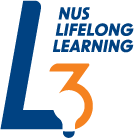Objectives
This course is designed to equip students, teachers, and parents with essential knowledge about how humans learn and retain information. Developed with the recognition that learning is a continuous and evolving process, the course acknowledges that schools today must prepare students for careers that do not yet exist e.g AI-assisted diagnostics specialists, bioinformatics clinicians, virtual reality (VR) therapy specialists, and nanomedicine engineers. or roles that require them to constantly unlearn and relearn. To address these challenges, schools emphasize building long-term competencies and skills that support students in their tertiary education and future careers.Enhancing learning and memory processes is crucial for maximizing an individual’s potential and preparing them for future opportunities and challenges. This course incorporates the latest research in learning and memory science, focusing on how humans acquire, store, and apply knowledge. By understanding the underlying mechanisms of learning and memory, participants will gain insight into why certain learning strategies are effective and how adjustments to lifestyle and health can improve cognitive functions such as learning, thinking, and creativity.Teachers will also benefit from this course by learning best practices for designing lessons and assessments that reinforce information retention and improve student learning outcomes. Conducted in a workshop format, the course begins with an introduction to brain function, followed by an in-depth exploration of the neural basis of learning and memory. Scientific evidence on how humans learn and how memory is formed and maintained will be discussed, along with effective learning strategies and techniques Participants will also have the opportunity to apply these insights to enhance their own learning and teaching experiences. In the healthcare field, they can leverage this knowledge to improve medical education, enhance patient communication, and design more effective training programs for healthcare professionals. Additionally, healthcare practitioners can apply these strategies to optimize knowledge retention in high-stakes environments, such as surgical training, emergency response, and continuing medical education, ensuring that critical information is retained and applied effectively in real-world clinical settings.


